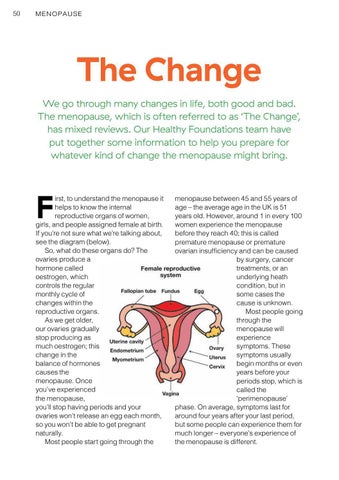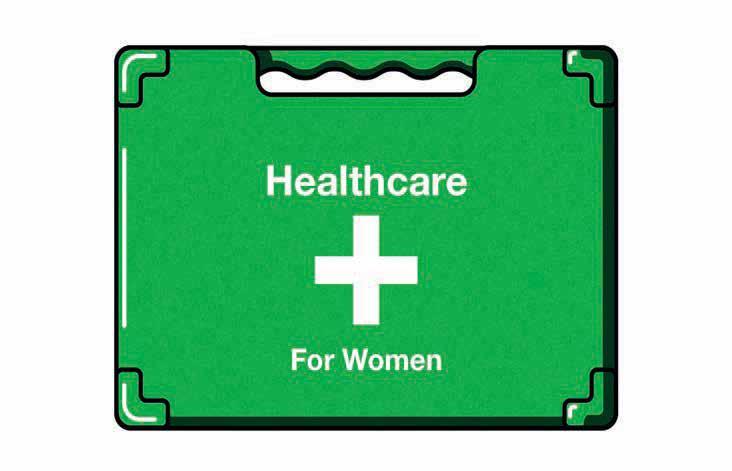50
MENOPAUSE
The Change We go through many changes in life, both good and bad. The menopause, which is often referred to as ‘The Change’, has mixed reviews. Our Healthy Foundations team have put together some information to help you prepare for whatever kind of change the menopause might bring.
F
irst, to understand the menopause it helps to know the internal reproductive organs of women, girls, and people assigned female at birth. If you’re not sure what we’re talking about, see the diagram (below). So, what do these organs do? The ovaries produce a hormone called oestrogen, which controls the regular monthly cycle of changes within the reproductive organs. As we get older, our ovaries gradually stop producing as much oestrogen; this change in the balance of hormones causes the menopause. Once you’ve experienced the menopause, you’ll stop having periods and your ovaries won’t release an egg each month, so you won’t be able to get pregnant naturally. Most people start going through the
menopause between 45 and 55 years of age – the average age in the UK is 51 years old. However, around 1 in every 100 women experience the menopause before they reach 40; this is called premature menopause or premature ovarian insufficiency and can be caused by surgery, cancer treatments, or an underlying heath condition, but in some cases the cause is unknown. Most people going through the menopause will experience symptoms. These symptoms usually begin months or even years before your periods stop, which is called the ‘perimenopause’ phase. On average, symptoms last for around four years after your last period, but some people can experience them for much longer – everyone’s experience of the menopause is different.

















